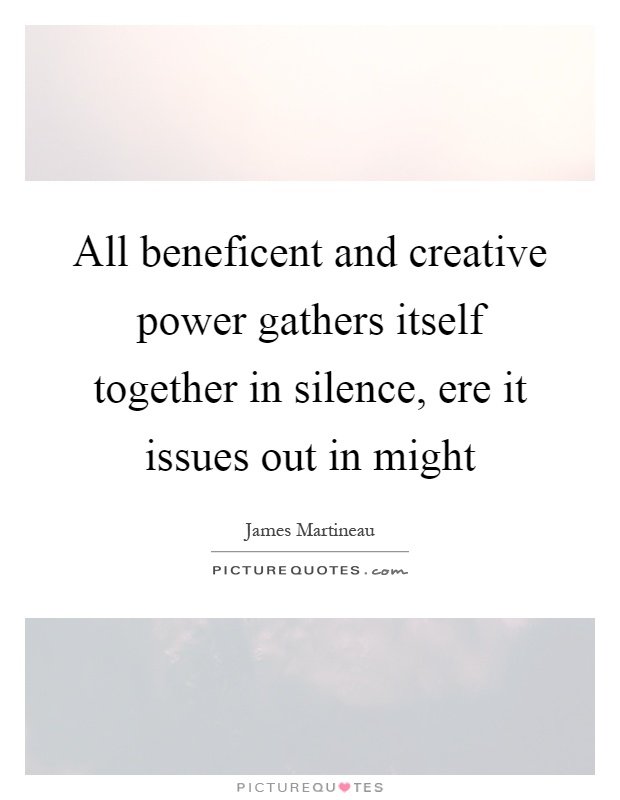The Virtue of Justice and Beneficence

Image Source
Action that require rewards:
Tend to do good
Come from good motives
Action that merit punishment:
Tend to do harm
Come from bad motives
Beneficence is always free, it can't be coerced by force, and simply not giving doesn't open one to punishment, on the grounds that the unimportant absence of beneficence doesn't tend to deliver real positive evil. It might disillusion somebody who had reasonably expected some advantage, and on that account it might legitimately stimulate abhorrence and disapproval, yet it can't incite any resentment that mankind will oblige.
The man who doesn't reward his benefactor when he has it in his power to do as such, and when his benefactor needs his assistance, is no uncertainty blameworthy of black ingratitude. No fair-minded spectator will have any kindred inclination with the narrow-mindedness of his motives, and he is the correct object of the highest disapproval. Yet at the same time he does no positive harm to anybody. He simply doesn't do the good that in appropriateness he should have done.
He is an object of scorn, a passion naturally stimulated by shamefulness of sentiment and conduct however not of resentment, a passion that is legitimately stirred just by actions that have a tendency to do real positive harm to some specific persons. So this current person's absence of gratitude can't be punished. To oblige him by force to do what gratitude should lead him to do, and what each fair-minded spectator would approve of him for doing, would be significantly more dishonorable than his fail to do it.
His benefactor would shame himself in the event that he attempted by brutality to force him into gratitude, and it would be unimportant intruding for any third person to intercede unless he was the prevalent of one of the other two. In any case, of all the duties of beneficence, those that are recommended by gratitude come nearest to what is called an impeccable and finish commitment.

Image Source
What we are provoked to do by friendship, by generosity, by charity, meeting with universal approval when we do as such, is considerably more free than the duties of gratitude, significantly encourage from being extortable by force. We have the expression 'a debt of gratitude'; we don't talk about 'a debt of charity' or ' of generosity' or even ' of friendship' aside from when the friendship connection has bases for gratitude blended in with it.
It appears that nature gave us resentment for our own particular protection and just for that. It is the protect of justice and the security of honesty. It prompts us to beat off harm that others are endeavoring to do to us, and to counter for harm effectively done, so the wrongdoer might be caused to be sad for what he did, thus that others, through dread of comparative punishment, might be panicked off from comparable offenses.
So resentment must be held for these reasons, the spectator will never oblige it when it is applied for some other reason. What's more, the simple absence of the beneficent virtues doesn't do any harm from which we can have event to shield ourselves. Be that as it may, there's another virtue the observance of which isn't left to the freedom of our own wills, which might be coerced by force, and the infringement of which opens the agent to resentment and in this way to punishment.
This virtue is justice, the infringement of justice is damage, it does real positive harm to some specific persons, from motives that are naturally disapproved of. So it is a legitimate object of resentment, and of the natural outcome of resentment, to be specific punishment. Mankind oblige and approve of the viciousness utilized to vindicate the harm that is finished by injustice, and to a much more prominent degree they oblige and approve of the savagery that is utilized to anticipate and beat off the damage and to control the guilty party from harming his neighbors.
Somebody who is considering perpetrating an injustice knows about this, and feels that force may legitimately be utilized, both by his expected victim and by others, either to prevent him from carrying out his crime or to rebuff him when he has carried out it. This is the reason for the noteworthy qualification amongst justice and all the other social virtues that was as of late stressed by a creator of awesome and unique virtuoso.

Image Source
We feel ourselves to be under a stricter commitment to act as per justice than to act in ways that fit with friendship, charity, or generosity. Regardless of whether we play out these last three virtues is by all accounts left to some degree to our own decision, yet we feel some way or another that we are extraordinarily tied, bound, and obliged to comply with justice in our conduct.
We feel that force may, with the most extreme respectability and with the approval of all mankind, be utilized to influence us to comply with justice, yet not to take after the statutes of the other social virtues. In any case, we should always painstakingly recognize what is just culpable or a legitimate object of disapproval from what might be either punished or avoided by force.
Something appears to be culpable in the event that it falls shy of the ordinary level of appropriate beneficence that experience shows us to expect of everyone, and something appears to be laudable on the off chance that it goes past that level of beneficence. Conduct that is at the ordinary level of beneficence appears to be neither reprehensible nor laudable. Somebody who carries on towards his son, his father, his brother, in a manner that is neither preferred nor more regrettable over the conduct of most men, appears to be appropriately to merit neither acclaim nor fault.
Be that as it may, even the most ordinary level of graciousness or beneficence can't be coerced by force. Among equals every individual is viewed as having a privilege to safeguard himself from wounds and to correct a specific level of punishment for wounds that have been done to him. Each generous spectator not just approves of his conduct when he does this, however enters so far into his sentiments that he is frequently eager to help him in this.
In any case, when a father falls shy of the ordinary level of parental affection towards a son, or a son's state of mind to his father appears to do not have the dutiful adoration that may be normal, or brothers are without the typical level of brotherly affection, or a man close out compassion and declines to ease the wretchedness of his kindred animals however he could undoubtedly do as such one envisions that the individuals who may have reason to expect more thoughtfulness have any privilege to coerce it by force.

Image Source
The sufferer can just whine, and the spectator can't meddle aside from exhorting and inducing. In all such cases it would be thought the highest level of impoliteness and assumption for equals to utilize force against each other. A predominant may once in a while require individuals under his locale to carry on with a specific level of appropriateness towards each other and nobody will discover blame with his doing.
The laws of all acculturated nations oblige parents to help their children, and grown-up children to help their aged parents, and force on men many different duties of beneficence. The common officer is depended with the power not just of protecting the public peace by controlling injustice, yet additionally of advancing the thriving of the republic by setting up good teach and disheartening each kind of bad habit and shamefulness.
So it is all privilege for him to recommend decides that don't simply deny nationals from harming each other yet additionally command that they help each other to a specific degree. In the event that the sovereign commands the natives to do A, from that point on not-doing-An is noncompliance and isn't just reprehensible however punishable. That holds regardless of the possibility that before the sovereign's command there had been no accuse appended to not-doing-An, and it keeps all the more emphatically still if not-doing-A had been profoundly accountable even before the sovereign commanded the doing of A.
Of all the duties of a law-giver, in any case, this might be the one that needs the best delicacy and alert to perform with legitimacy and judgment. To disregard it by and large opens the ward to many gross disorders and stunning crimes, and to push it too far is damaging of all liberty, security, and justice.
In spite of the fact that the absence of beneficence doesn't appear to merit punishment among equals, the more prominent endeavors of that virtue do seem to merit the highest reward. By delivering the best good they end up noticeably natural and approved objects of the liveliest gratitude. Then again, a man's rupture of justice opens him to punishment, though his watching the principles of that virtue scarcely appear to merit any reward.

Image Source
There is absolutely an appropriateness in acting legitimately, with the goal that such conduct merits all the approval that is because of respectability. But since it does no real positive good it isn't qualified for much gratitude. On the off chance that as well as can be expected say of somebody is that he doesn't damage the persons or domains or notorieties of his neighbors, he without a doubt doesn't have much positive merit.
Yet, he fulfills all the guidelines of justice, entirely alleged, and does everything that his equals can legitimately force him to do or rebuff him for not doing. We can frequently satisfy all the guidelines of justice by sitting still and doing nothing. As you treat others, so they will treat you, and striking back is by all accounts the considerable law that Nature directs to us. We consider beneficence and generosity as being owed to the individuals who are themselves generous and beneficent.
With respect to the individuals who never open up their hearts to the sentiments of humanity, we feel that they ought to be correspondingly closed out from the affections of all their kindred animals and allowed to live amidst society just as in an incredible forsake where there's no one to tend to them.
Somebody who damages the laws of justice should be made to feel for himself the evil that he has done to another person, and in light of the fact that he can't be limited by his brethren's sufferings, he should be over-awed by the dread of his own. The man who is simply blameless can merit just that his neighbors should regard his purity consequently, and that similar laws ought to be carefully seen with respect to him.

Image Source

References:
https://en.wikipedia.org/wiki/Justice
https://en.wikipedia.org/wiki/Virtue
https://www.libertarianism.org/publications/essays/justice-beneficence
https://en.wikipedia.org/wiki/Resentment
Theory of Moral Sentiments, Adam Smith
Well I love this quote.
"Justice delayed is justice denied."
Downvoting a post can decrease pending rewards and make it less visible. Common reasons:
Submit
Congratulations! This post has been upvoted from the communal account, @minnowsupport, by juvyjabian from the Minnow Support Project. It's a witness project run by aggroed, ausbitbank, teamsteem, theprophet0, someguy123, neoxian, followbtcnews/crimsonclad, and netuoso. The goal is to help Steemit grow by supporting Minnows and creating a social network. Please find us in the Peace, Abundance, and Liberty Network (PALnet) Discord Channel. It's a completely public and open space to all members of the Steemit community who voluntarily choose to be there.
Downvoting a post can decrease pending rewards and make it less visible. Common reasons:
Submit